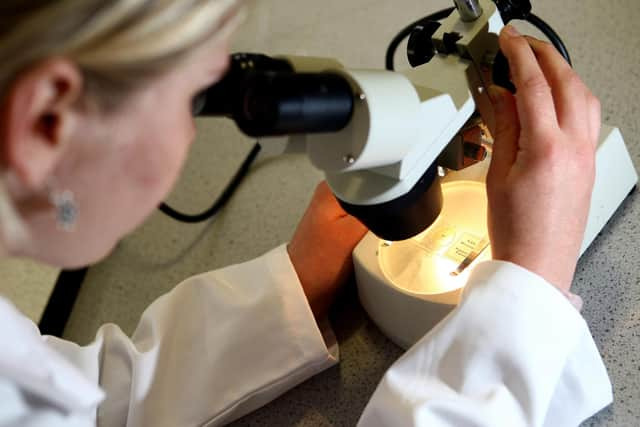There has been a concerning drop in the number of Wigan women coming forward for cervical screening
and live on Freeview channel 276
Jo’s Cervical Cancer Trust said it will be challenging for the health service to achieve its goal of eliminating cervical cancer by 2040 as cervical screening coverage continues to fall across England.
NHS England figures show just 73.3 per cent of 86,767 eligible 25 to 64-year-olds in Wigan were adequately screened as of March 31.
Advertisement
Hide AdAdvertisement
Hide AdIt was down from 74.3 per cent the year before, and below the target of 80 per cent.


Nationally, 68.7 per cent of eligible individuals aged 25 to 64 were adequately screened this year – a fall from 69.9 per cent in 2022.
Jo’s Cervical Cancer Trust said it is "incredibly frustrating" to see targets missed for the 19th year in a row.
The charity added the NHS England’s recently announced goal of eliminating cervical cancer by 2040 is "going to be challenging".
Advertisement
Hide AdAdvertisement
Hide AdMartin Hunt, chief executive, said: "We understand that it’s not an easy appointment for everyone. It can sometimes be difficult to attend for a variety of reasons including work and childcare commitments, anxiety, and misinformation surrounding the test.
"But these tests are vital; they can prevent cancer."
The national decline in coverage was primarily driven by a fall in 24 to 49-year-olds being screened. This age group is invited for tests every three years.
In Wigan, 72.4 per cent were screened as of March this year – a fall from 74 per cent in 2022.
Of the eligible 50 to 64-year-olds in the area – who are invited every five years – 74.8 per cent were tested as of this year. It was down from 74.9 per cent the year before.
Advertisement
Hide AdAdvertisement
Hide AdNicola Smith, senior health information manager at Cancer Research UK, said: "The cervical screening programme saves thousands of lives every year in the UK by preventing cancer and helping to stop the disease in its tracks.
"We encourage women and people with a cervix, such as trans men and non-binary people assigned female at birth, to take part."
She suggested people who find cervical screening uncomfortable ask for a longer time slot to speak about any concerns.